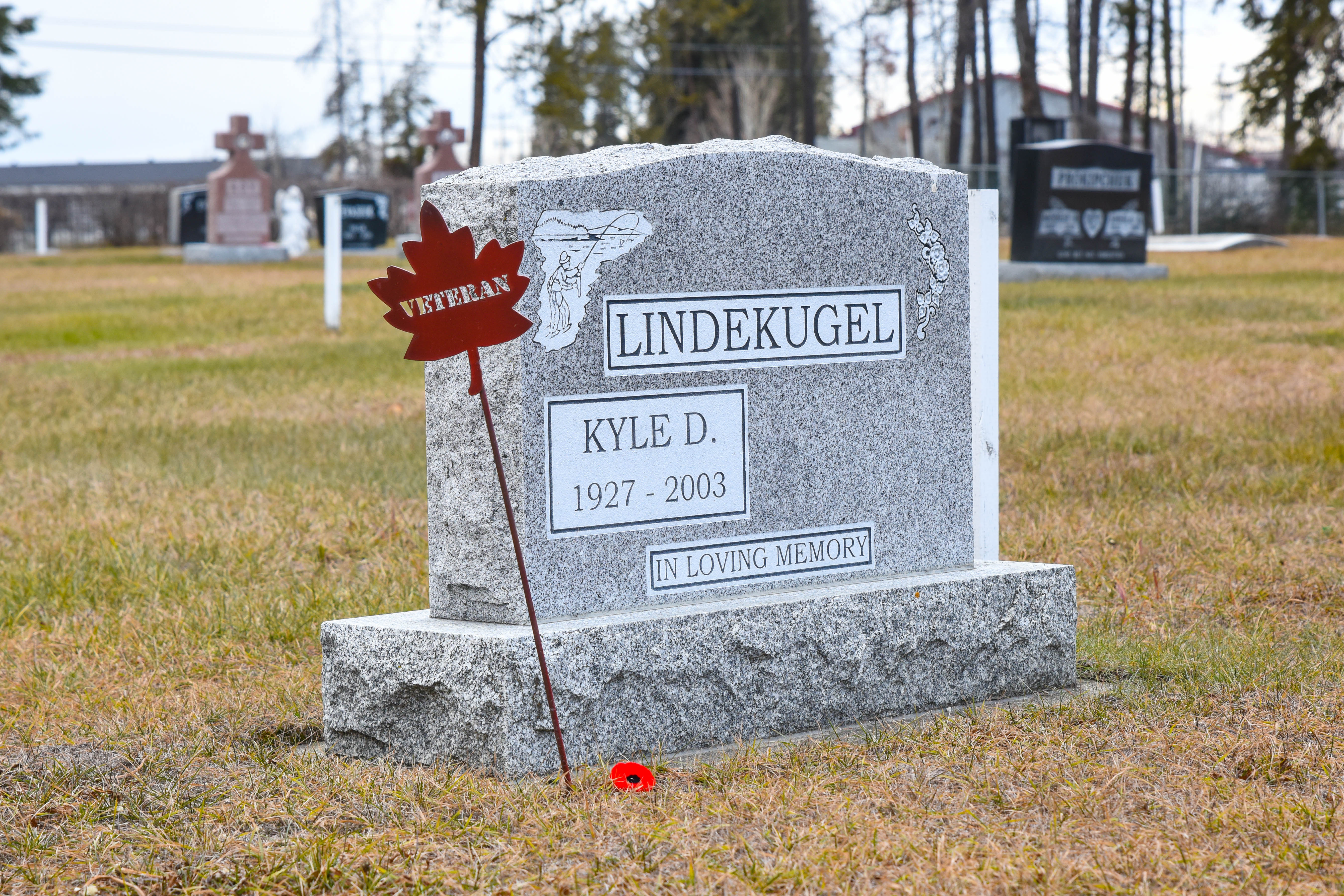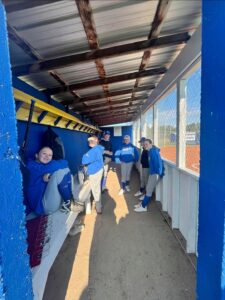
Remembrance Day means something different to everyone. For some, it reminds them of previous generations in their family and reflects on the experiences their loved ones had. For others, the day is about appreciation and pausing to consider those whom they do not know, who paved the way for today to exist as it does.
“When I was young, Remembrance Day was about respecting my family members that served during times of war and peace,” explained Kyle Scott, Service Officer for the Whitecourt Legion Branch #44. “I remember being the annoying little kid that wanted to ask a thousand questions to my grandpa about what things were like, and of course, he didn’t want to talk about it. He stayed in after World War II and made a life out of it, for 34 years.”
When Scott grew up and joined the military, he then understood to a different extent why it was so hard for his grandfather to speak about his experiences. “Deployment life, being gone and deploying to conflict zones, being away from life and family, birthdays, deaths, marriages, and the rest of the world isn’t easy, and it’s not fun. It’s not this grand adventure that you think it is as a kid. There’s so much more to it, and a lot of that is awful and scary. You try and explain that to a young person, and they just look at you with their eyes wide open. They just want a story, but they don’t understand that when you fire your weapon, there’s a consequence to that, and sometimes it’s truly awful.”
He said that now, Remembrance Day isn’t just about the generations that came before him. “Now, it’s about my friends who didn’t come home, and I really struggled with that after my second tour. It was a really bad deployment. We, unfortunately, lost a lot of people. Even since then, in tours where I wasn’t there, I’ve had friends that were killed.”
Scott said that he considers Remembrance Day to be his favourite and least favourite day of the year, simultaneously. “I get to chat with so many others that have served, whether that’s the air force, army, or navy. I don’t care if you’re 100 years old or twenty years old; I’m just happy to meet someone else who cared enough to want to serve. If we get to share a few laughs and talk about the hardships and trials and tribulations of becoming a young soldier, then it’s a great day. But I also hate it in the sense that you’re like a fish in a bowl, and everyone is staring at you and waiting to hear what you say and what you do. You want to grieve, but you can’t because everyone is looking. In a lot of ways, I finally understand why a lot of these guys didn’t talk about it and why they didn’t want to reminisce very much about those years that they were away from home and losing friends.”
Scott said that sharing veteran experiences can be challenging but that, as a country, Canada needs to do better. “It’s been lost over the generations, and we must do better across the country by talking about remembrance regularly.
He said that people back home were affected in the first and second world wars, too, not just those on the front lines. “There was rationing. There wasn’t one thing that wasn’t affected by it. So, I understand the frustrations of veterans when they came home, and the people back here didn’t experience what they did or lose as badly as they did.” That disconnect has, in part, led to a smaller conversation around veterans and the sacrifices they made and continue to make.
“We need to make sure these younger generations understand the sacrifices that so many before us made, let alone my generation. We are losing that education and that history rapidly because we aren’t putting any focus on it like we used to,” said Scott. He explained that previous generations had more access to history as more veterans were around to share it. “They ensured that message was passed on. Now, we are down to about 20,000 WWII vets left in the country, and that’s probably a stretch. The average age of them is probably 96. We are only a few years away from the last second world war veteran being gone, and then the Korean vets won’t be that far behind them, maybe ten years. With those generations gone, that history is gone, and that link to it is gone,” said Scott.
He said that Canadians are typically very patriotic and motivated when they want to be. “We always joke that we are the proudest patriots on the planet when it’s the Olympics or the Stanley Cup. There’s no prouder Canadian than in those times. But we need to do so much better with supporting our serving military and our veterans. To this day, our veterans are still fighting the government in court for proper care and benefits. There’s just no motivation on the government’s side to correct these things.”
As the Service Officer, Scott helps veterans regularly by assisting them in the complicated process of applying for benefits and support. He said that veterans from the second world war didn’t see a dime until decades after serving. He said modern-day veterans could wait a year or two before receiving a response on a disability claim. “For someone that is in the depths of depression, anxiety, and post-traumatic stress disorder, that is an awfully long time to go on your own. We lose people.”
As Remembrance Day 2021 approaches, Scott said he would like to see more education, historically, on what Canada has done as a nation and more support and empathy for military and RCMP members. He would also like to see a push towards overhauling Veterans Affairs. “You don’t have to be a veteran to talk to your local MLA or MP and insist we put more time and effort into a long-lasting level of care for veterans.”







More Stories
Community spirit shines at large-scale youth baseball event
Birthday party chaos sung beautifully by Pumpjack Players’ youth in spring musical
Gearing up for another season of cars, cruising and camaraderie